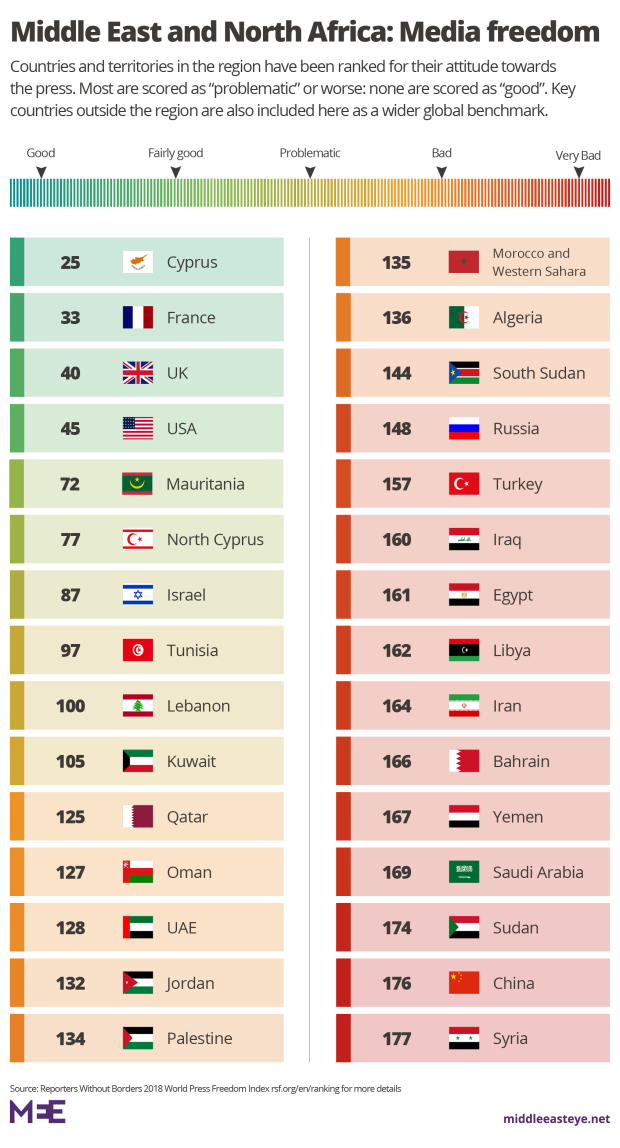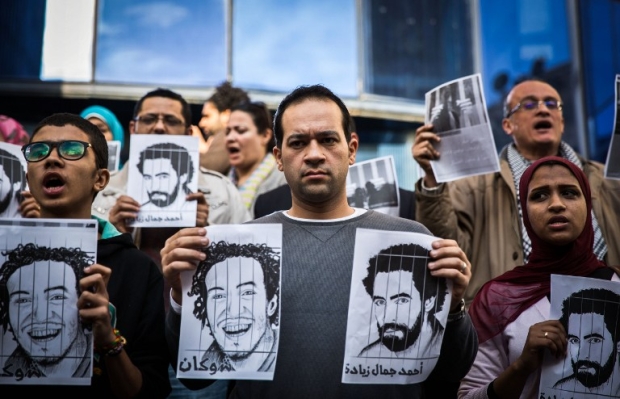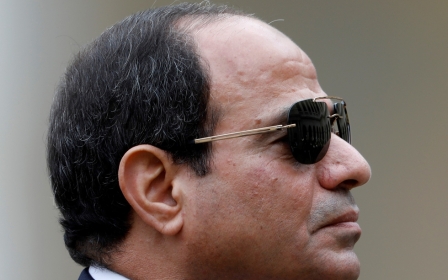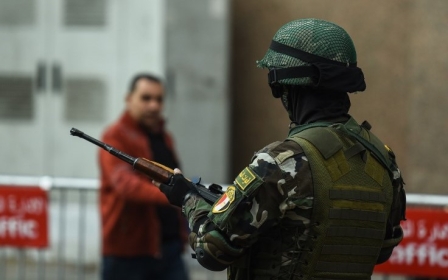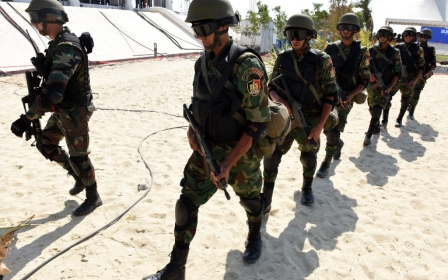Welcome to Sisi's Orwellian universe where freedom is slavery and ignorance is strength
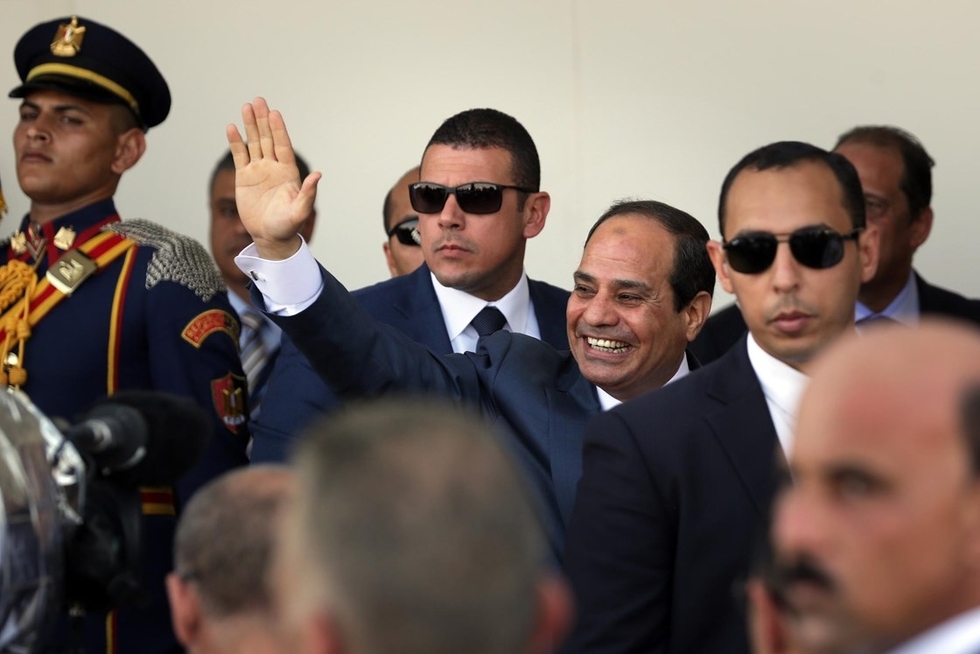
An ambivalent mood of resigned outrage pervaded Egypt's virtual space last week when a controversial media law passed with a two-thirds majority in parliament, pending ratification by President Abdel Fattah al-Sisi.
The law gives the government unprecedented sweeping powers to regulate the traditional public and private press, severely restricts the work of broadcasters, and practically codifies the demise of the last remaining vestiges of free speech on the internet.
General Intelligence buyout
The triple-pronged regulatory scheme consolidates the executive branch’s control over the country’s embattled fourth estate by combining three laws: the law organising the press, media and the Supreme Media Council (SMC), which regulates private media; the National Press Authority law (NPA), which regulates state-owned newspapers and news websites; and the National Broadcasting Authority law (NBA), which regulates state-owned TV channels and radio stations.
Our entire existence as sentient beings in the 2018 definition of the word has been hijacked by a regime incapable of looking past the end of its crooked nose
But even though the law itself is new, the story at its core, is old, stale and teeming with maggots.
It is not news that Egypt's ruling dictatorship's top priority in the past five years since a military coup removed the country's first democratically elected president, was to quash any form of dissent and to exercise absolute control over the mass media. To that end the government has systematically imprisoned and intimidated journalists or blocked them from reporting, and has banned over 500 websites last year.
International press freedom organisations have consistently ranked Egypt among the top press freedom offenders worldwide, with at least 20 journalists behind bars to date.
But that was not enough. In December Eagle Capital, headed by former minister of investment, Dalia Khorshid, acquired media conglomerate Egyptian Media Group, which owns 16 media subsidiaries including the pro-government Youm7 daily newspaper, Synergy and ONTV, as well as a slew of marketing and advertising agencies.
In fact, it is believed that independent news and analysis website Mada Masr was banned after publishing an investigation claiming that Eagle Capital was a front for the General Intelligence Service's private sector projects and companies.
Interviewed in the report was Hisham Kassem, publisher and former CEO of the privately owned Al-Masry Al-Youm newspaper, who was quoted as saying that he was "told directly by owners of various newspapers and television channels that they were contacted by Khorshid … to negotiate possible partnerships with the General Intelligence Service, or to complete acquisition deals."
"It is merely a shopping rush," he continued, "in response to public instructions from the president to reach the level of full media lineup behind the leader, as was the case in the [Gamal] Abdel Nasser epoch."
Bureaucratic and financial hurdles
Then came this law to complete the circle. New definitions of what constitutes a "media outlet" effectively gag free speech for all. Not only does the law penalise journalists for publishing what it deems "fake news", that is, any version of events that does not parrot the official line, but it also considers regular individuals with more than 5,000 followers or subscribers on social media platforms like Twitter and Facebook as media outlets and hence fall under the regulatory arm of the SMC.
The head of the SMC is appointed by the president who, in an official speech replete with threats against "enemies of the state" in February 2016, warned Egyptians "not to listen to anyone" but him.Less than a year later, he established the media council by decree, empowering it with the all-too-familiar vague verbiage that now gives it the authority to prosecute anyone (not just journalists) for "inciting people to violate laws" and for "defamation against individuals and religions”.
According to article 12 of the law, both broadcast and print journalists are now required to apply for permits to attend public meetings or conduct interviews with citizens in public places where it is already permissible to do so.
The violations are happening and will continue to happen. Unless we are willing to get over our differences and collectively take a stand, then no amount of condemnation will change a thing
And the list goes on and gets worse. The new law further creates bureaucratic and financial hurdles for digital media outlets stipulating a capital investment of EGP 2.5m ($139.935) to establish an online video channel on a website. Violations are subject to both prohibitively exorbitant fines ranging between EGP 1-2m (£43,000-86,000) as well as a license revocation.
A news website now also requires a special license - at a whopping price tag of EGP100,000 ($5,605) - and is defined as “a page, link or application that offers press, media or advertising content, be it text, audio, pictures, video or multimedia; broadcasts under a given name; is assigned a specific URL and domain; and is created, hosted or accessed via the world wide web.”
In short, our entire existence as sentient beings in the 2018 definition of the word, has been hijacked by a regime incapable of looking past the end of its crooked nose.
Psychological warfare
The context begs reflection on that fateful day back in 2011. The Egyptian government literally switched off the internet on 28 January; an entire nation of 90 million people was unplugged from the global, digital map in the blink of an eye. For a moment life stood still.
That was the last step in an earlier version of this triple-pronged gag scheme aimed to put a halt to the irreversible course of events that started three days before. But it was just as callous as it was naïve.
I know someone who lost her sister because they couldn’t call an ambulance or get her to a hospital on time.
At each of these steps, as the lights dimmed, people found ways to let the world know about the killings, the kidnappings and the mass arrests. To let it know that something had started that wasn't going to stop. But when the last ray of light flickered off, and the darkness settled, and there was no alternative, millions flooded the streets, and with the force of a tsunami chanted in unison "the people demand the fall of the regime".
For better or for worse, the flip of a switch changed Egypt's political trajectory in 18 days.
The laws of nature, the precedent of history and the impossibility of controlling how tens of millions of people use the internet, means that implementing the letter of the law on a mass scale would have been impossible. This is merely another facet of the regime's psychological warfare. They have been rounding up prominent figures to intimidate others who are "saying things on the internet" for years already, law or no law.
As I was writing this piece the Supreme State Security Prosecution reportedly renewed the detention of a group of journalists, bloggers, activists and photographers on so-called "terrorism" charges. Others too, who have nothing to do with the media, have also been detained, sometimes for conducting research and others for merely thinking aloud.
In an Orwellian universe where freedom is slavery and ignorance is strength, the judges didn’t need to wait for a law to pass their judgments, and the sentries didn’t need a warrant to lock people up.
The violations are happening and will continue to happen. Unless we are willing to get over our differences and collectively take a stand, then no amount of condemnation will change a thing. Resignation will continue to trump outrage, until even the outrage will dissolve into the thick air of capitulation.
This may not be about freedom of speech after all. Perhaps it’s time to go back to the drawing board and figure out exactly what we should be fighting for.
- Rania Al Malky is the former editor-in-chief of Daily News Egypt (2006-2012), which was the local publishing partner of the International Herald Tribune. She is currently a freelance contributor for various publications.
The views expressed in this article belong to the author and do not necessarily reflect the editorial policy of Middle East Eye.
Photo: President Sisi surrounded by bodyguards (AFP)
New MEE newsletter: Jerusalem Dispatch
Sign up to get the latest insights and analysis on Israel-Palestine, alongside Turkey Unpacked and other MEE newsletters
Middle East Eye delivers independent and unrivalled coverage and analysis of the Middle East, North Africa and beyond. To learn more about republishing this content and the associated fees, please fill out this form. More about MEE can be found here.



